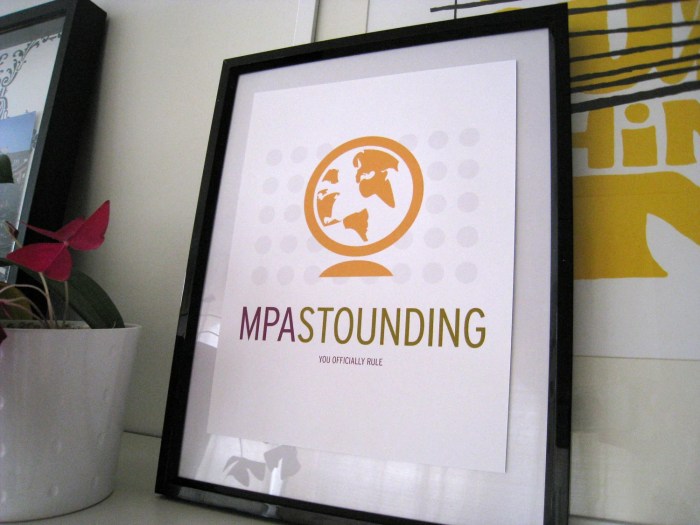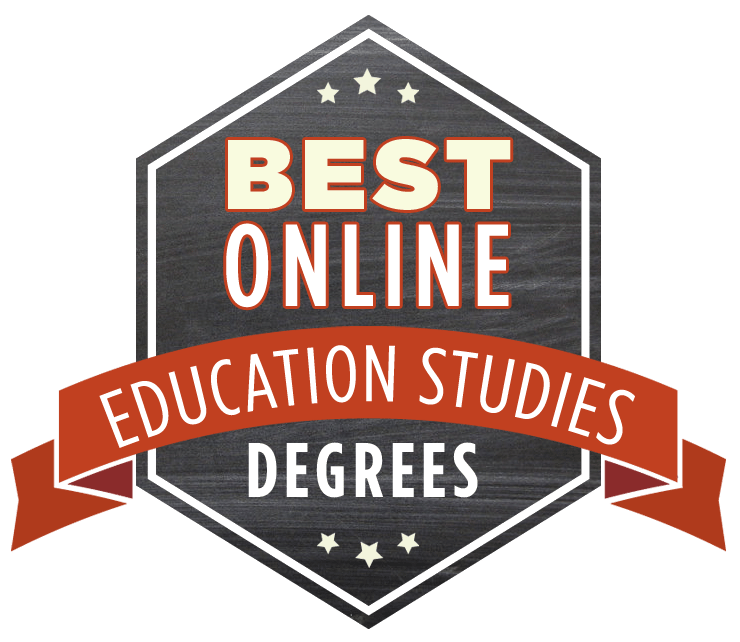Executive master programs at the forefront provide a unique avenue for professionals seeking to elevate their careers to new heights. These advanced educational initiatives are designed specifically for seasoned individuals looking to enhance their leadership skills, strategic thinking, and industry knowledge. With a diverse range of programs offered globally, executive masters cater to a variety of backgrounds, empowering participants to excel in their respective fields.
These programs not only equip students with theoretical knowledge but also emphasize real-world applications, ensuring graduates are well-prepared to tackle contemporary business challenges. As professionals from various industries come together, they create a rich learning environment that fosters collaboration and networking, making the journey through an executive master both enriching and transformative.
Overview of Executive Master Programs
Executive Master Programs are specialized degrees designed for mid-career professionals seeking to enhance their leadership skills and advance their careers. These programs typically cater to individuals with significant work experience who are looking to deepen their knowledge and skills in a particular field. Unlike traditional master’s programs, Executive Masters focus on practical application, integrating theoretical concepts with real-world challenges that executives face.The purpose of Executive Master Programs is to prepare professionals for higher-level responsibilities by equipping them with advanced management techniques, strategic thinking skills, and a comprehensive understanding of the global business landscape.
Participants engage in rigorous academic coursework, networking opportunities, and experiential learning, all tailored to their unique career trajectories.
Examples of Popular Executive Master Programs
Numerous institutions around the world offer reputable Executive Master Programs that cater to various professional needs and industries. Below are some notable examples:
- Executive Master of Business Administration (EMBA)
-Offered by leading business schools such as the Wharton School and INSEAD, this program is designed for experienced managers who want to enhance their strategic and leadership capabilities. - Master of Public Administration (MPA)
-Programs like those at Harvard Kennedy School focus on developing leaders who can effectively manage public organizations and implement public policy. - Executive Master in Finance
-Schools such as Columbia University provide this program for executives looking to deepen their financial acumen and strategic financial management skills. - Master of Global Management (MGM)
-Offered by institutions like Thunderbird School of Global Management, this program emphasizes international business strategies and cross-cultural management skills.
Target Audience for Executive Master Programs
Executive Master Programs primarily target seasoned professionals who have accumulated substantial work experience, typically ranging from five to fifteen years. This audience includes:
- Mid-level Managers
-Individuals in positions such as department heads or project leaders looking to move into senior management roles. - Industry Professionals
-Specialists in fields like finance, healthcare, and technology seeking to broaden their expertise and transition into executive positions. - Entrepreneurs
-Business owners or startup founders aiming to enhance their strategic vision and operational capabilities. - Government Officials
-Leaders in public service seeking advanced skills to navigate complex policy environments and improve organizational effectiveness.
These programs are designed to be flexible, accommodating the busy schedules of working professionals. With a focus on experiential learning and collaboration, they provide a unique opportunity for participants to apply their learning directly to their workplace challenges.
Choosing the right degree is crucial for your future career path, as it shapes your knowledge and skills. Whether you are interested in fields like technology, healthcare, or business, the right educational background can enhance your employability. Investing time in researching potential degrees will ensure you make an informed decision that aligns with your career aspirations.
Benefits of Pursuing an Executive Master
The decision to pursue an Executive Master degree is a strategic choice for professionals looking to elevate their careers. These programs are designed for experienced individuals who seek to enhance their expertise, leadership capabilities, and strategic thinking skills. As the business landscape evolves, the relevance of advanced education that directly impacts one’s career trajectory becomes increasingly significant.
One of the primary advantages of obtaining an Executive Master degree is the transformative impact it has on leadership skills and strategic thinking. These programs are tailored to provide an intensive curriculum that merges theoretical knowledge with practical applications, allowing participants to navigate complex business environments effectively. The focus on real-world scenarios equips students with the tools necessary to tackle challenges head-on, fostering a mindset geared towards innovation and problem-solving.
Key Advantages of an Executive Master Degree
The benefits of pursuing an Executive Master are manifold, encompassing various dimensions of personal and professional growth. Below are some of the key advantages that graduates typically experience:
- Enhanced Leadership Skills: The curriculum is designed to sharpen leadership abilities through experiential learning, case studies, and peer collaboration.
- Networking Opportunities: Students gain access to a diverse network of professionals, including alumni and faculty, which can lead to new business opportunities and collaborations.
- Career Advancement: Graduates often see significant career growth, including promotions and higher salary potential, due to their advanced qualifications.
- Strategic Thinking Development: The program emphasizes critical thinking and strategic planning, allowing students to approach business challenges with a well-rounded perspective.
- Global Perspective: Many Executive Master programs incorporate international case studies and global business trends, broadening students’ horizons and enhancing their understanding of the global market.
“An Executive Master is not just an educational credential; it’s a catalyst for career transformation.”
Alumni testimonials highlight the profound impact of these programs on their careers. For instance, Jane Doe, a graduate of an Executive MBA program, stated, “The program not only developed my strategic thinking but also connected me with industry leaders who became invaluable mentors.” Similarly, John Smith, another alumnus, shared, “Through my Executive Master’s journey, I was able to transition from middle management to a senior executive role, thanks to the skills and networks I developed.” Their success stories underscore the importance of pursuing an Executive Master as a significant step towards achieving one’s professional ambitions.
Curriculum and Specializations

Executive Master programs cater to the needs of seasoned professionals seeking to enhance their knowledge and skills while balancing their careers. The curriculum is designed to provide a blend of theoretical knowledge and practical application, equipping students with the tools needed to thrive in leadership roles. The comprehensive structure enables participants to gain insights into various business domains while allowing for specialization in key areas.The curriculum typically includes core subjects that provide foundational knowledge in management principles, strategic decision-making, and leadership.
In addition to core courses, students can choose from a range of electives that align with their career goals and interests. This flexibility allows for a customized learning experience that is both relevant and impactful.
Common Curriculum Structure
The common curriculum structure of Executive Master programs is divided into core courses and elective courses. Core subjects generally cover essential business concepts, ensuring that all participants acquire a solid grounding in fundamental areas. Elective courses, on the other hand, provide opportunities to delve deeper into specific interests and industry trends. Core subjects often include:
- Strategic Management
- Financial Accounting
- Organizational Behavior
- Marketing Management
- Operations Management
In contrast, elective courses might encompass various specializations, enabling students to tailor their learning experience to their career aspirations.
Specializations Offered
Various specializations are available within Executive Master programs, allowing participants to focus on areas that are most relevant to their career trajectories. Some popular specializations include:
- Finance: Deep dives into financial analysis, corporate finance, investment strategies, and risk management.
- Marketing: Emphasis on brand management, digital marketing, consumer behavior, and marketing analytics.
- Entrepreneurship: Focused on innovation, venture creation, and entrepreneurial finance.
- Leadership: Training in transformational leadership, team dynamics, and ethical decision-making.
- Data Analytics: Skills in data-driven decision-making, predictive analytics, and business intelligence.
These specializations prepare graduates to meet the specific demands of their chosen fields, enhancing their marketability and expertise.
Core Subjects Versus Elective Courses
To better understand the distinction between core subjects and elective courses within Executive Master programs, the following table highlights their characteristics:
| Type | Core Subjects | Elective Courses |
|---|---|---|
| Purpose | Provide foundational knowledge across key business areas. | Allow for in-depth exploration of specific topics. |
| Examples | Strategic Management, Financial Accounting, Marketing Management | Digital Marketing, Venture Capital, Data Analytics |
| Mandatory/Optional | Mandatory for all students. | Optional, based on student interest. |
| Impact on Career | Essential for overall business acumen. | Enhances specialized knowledge and skills relevant to career aspirations. |
This structured approach ensures that students receive a well-rounded education while also having the flexibility to specialize in areas that will benefit their professional development.
Pursuing a career in geographic information systems can be highly rewarding, especially when you obtain a gis master degree. This advanced qualification equips you with the skills necessary to analyze spatial data and contribute significantly to various industries. With the demand for GIS professionals on the rise, holding a specialized degree can open numerous doors to exciting opportunities and help you stand out in the job market.
Admission Requirements and Application Process: Executive Master
In pursuing an Executive Master’s degree, understanding the admission requirements and application process is crucial. This process not only sets the foundation for your academic journey but also influences your selection among a competitive pool of candidates. Each institution may have varying standards, but certain commonalities exist across programs.The admission requirements for Executive Master’s programs typically include educational qualifications, professional experience, and standardized test scores.
Additionally, applicants may need to submit personal statements, letters of recommendation, and resumes. The following Artikels the standard admission requirements essential for applying to these programs.
Typical Admission Requirements
Most Executive Master’s programs require a specific set of qualifications. Understanding these aspects can assist candidates in preparing their applications effectively. The standard requirements generally include:
- Educational Background: A bachelor’s degree from an accredited institution is usually necessary. Some programs may require a specific field of study related to the intended specialization.
- Professional Experience: Candidates typically need several years of professional experience, often ranging from 5 to 10 years, demonstrating leadership capabilities and relevant industry experience.
- Standardized Test Scores: Depending on the institution, GMAT or GRE scores may be required, although some programs waive this requirement based on extensive work experience.
- Personal Statement: A well-crafted personal statement articulating career goals, reasons for pursuing the degree, and how it aligns with personal aspirations is essential.
- Letters of Recommendation: Two or three letters from professionals who can speak to the applicant’s qualifications and potential are usually required.
- Resume/CV: An updated resume detailing professional experiences, achievements, and relevant skills should be provided.
Application Process
Navigating the application process is vital to securing admission into an Executive Master’s program. Below are the key steps involved, along with essential documents and deadlines that applicants need to consider.
- Research Programs: Begin by exploring various institutions offering Executive Master’s programs. Consider aspects such as curriculum, faculty, reputation, and alumni network.
- Prepare Documents: Gather all required documents, including essays, resumes, and letters of recommendation. Ensuring these materials are polished and reflective of your professional journey is critical.
- Submit Application: Most applications are submitted online through the institution’s portal. Ensure all materials are uploaded before the deadline.
- Interviews: Some programs may require interviews, either in-person or virtually, as part of the selection process. Prepare to discuss your background and aspirations effectively.
- Receive Admission Decision: After submission, wait for the institution to review applications and communicate decisions. This may take several weeks.
- Enrollment Confirmation: Once accepted, confirm your enrollment by paying any required deposits and completing additional paperwork as instructed by the institution.
Entry Criteria Comparison
Different institutions maintain varying entry criteria, which can influence applicants’ choices significantly. A comparative analysis of a few well-known programs reveals distinct differences in requirements, which can guide prospective students in selecting the right program for their career goals.
| Institution | Professional Experience Required | Standardized Test Requirement | Special Requirements |
|---|---|---|---|
| Harvard University | 8 years minimum | Optional | Strong leadership experience |
| Columbia University | 5 years minimum | GMAT/GRE required | Interview required |
| University of Chicago | 7 years preferred | Optional based on GPA | Portfolio of work may be requested |
| Stanford University | No strict requirement, but substantial experience preferred | Optional | Personal interview required |
Career Advancement Opportunities
Completing an executive master program can significantly enhance career prospects and open doors to a myriad of professional opportunities. Graduates emerge with advanced skills, a broadened network, and a deeper understanding of their industry, all of which contribute to career advancement. The transition into higher-level positions, increased job satisfaction, and an expanded professional network become tangible outcomes of their commitment to further education.There are multiple career paths available to executive master graduates, encompassing various industries and roles.
Many find themselves stepping into senior management positions, consulting roles, and leadership opportunities within their organizations. The executive master also offers a competitive edge in the job market, enabling graduates to negotiate better salaries and positions.
Potential Career Paths
The diversity of career paths available post-graduation underscores the value of an executive master. Graduates often find themselves in roles such as:
- Chief Executive Officer (CEO)
- Senior Project Manager
- Business Development Director
- Strategic Consultant
- Operations Manager
- Human Resources Director
These roles not only represent advanced positions within organizations but also reflect the leadership and strategic acumen cultivated during the program.
Salary Increases and Job Placement Statistics
Statistics reveal that graduates of executive master programs frequently experience substantial salary increases upon completion. On average, individuals report salary hikes of approximately 20-30% within a year of graduating. In specific sectors such as technology and finance, these increases can be even more pronounced, with reports indicating that some graduates see raises exceeding $30,000 annually.Moreover, job placement rates for executive master graduates are impressive, with many institutions reporting placement rates as high as 90% within six months of graduation.
This success can be attributed to the strong industry connections and reputation of the programs, which facilitate introductions to potential employers.
Networking Opportunities within the Program, Executive master
The networking opportunities provided during executive master programs play a crucial role in career advancement. Engaging with peers, faculty, and industry professionals fosters relationships that can lead to partnerships, mentorships, and job referrals. During the program, students have the chance to participate in various networking events, workshops, and conferences that enhance their visibility in the industry. Alumni networks also provide ongoing support and connections, enabling graduates to tap into a wealth of resources and career guidance long after they complete their studies.
“Networking is not just a way to find a new job; it’s a way to enhance your career and open doors to new opportunities.”
Graduates who leverage these connections effectively often find themselves in advantageous positions, leading to quicker promotions and job offers in competitive markets.









